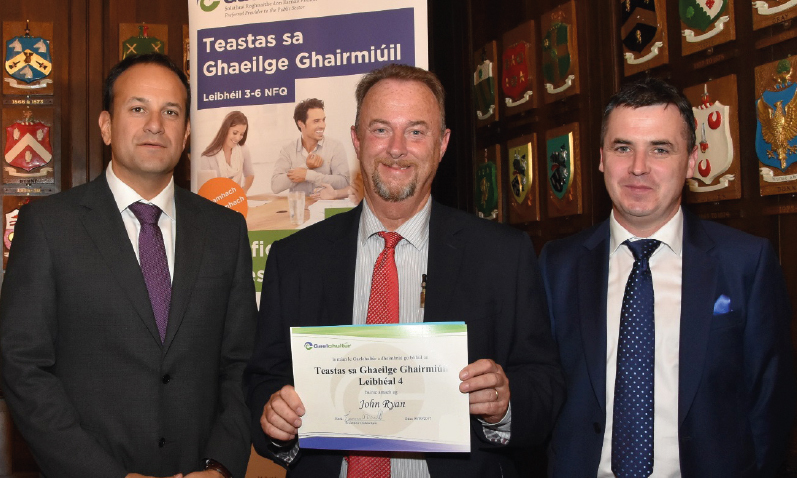
Folklore: Festivals, Traditions and Superstitions

Description
Are you interested in the old traditions of the Irish language? Would you like to learn more about the magic and the mysterious superstitions at the heart of the language? If so, this brand new course will be of great benefit to you. This 10-week course focuses on customs, superstitions and merry-making which revolve around the calendar. It will cover Christian and pre-Christian traditions and explore a wide range of events related to Irish culture.The course is suitable for people who already have advanced language skills. Complex Irish-language concepts and terms will be explored during the course. Participants will have the opportunity to get to know each other through the facilitation of creative and deep conversations. This unique course will entail a fascinating historical and linguistic journey in which vocabulary and complex aspects of grammar will be highlighted (such as the continuous past tense and the subjunctive mood) in context, giving learners the opportunity to enrich their Irish.
What does this course comprise?
Who is this course for?
This course is targeted at people who are fluent in Irish (B2) or who have already completed an advanced-level course. It will be of great benefit to those who have an interest in the folklore of the country or who wish to learn more about Irish culture.
Learning Outcomes
Below are the learning outcomes for students who successfully complete the programme:
Learning Approach
The course will last ten weeks and there will be a two-hour class each week. The entire course will take place online. The Gaelic festivals and the folklore associated with them will be highlighted throughout the course: the New Year, St Brigid's Day, Imbolc, St Patrick's Day, Bealtaine, Columba, St John's Eve, Lúnasa, Hallowe'en and Christmas.
Tutor
Donegal native Dubhán Ó Longáin is an Irish-language tutor at the University of Limerick. He has a keen interest in folklore and literature (and, in particular, in illustrating folklore in literature). He is also a creative writer and in his work enjoys recasting the old stories of Ireland with a contemporary outlook.
This course and/or the course Folklore: Story-telling, Heritage and Traditions may be undertaken in any order.
Book the course
Advanced
Our teaching approach
Gaelchultúr has developed comprehensive syllabuses and every class at every level follows these syllabuses.
The communicative approach to language teaching is used by Gaelchultúr’s teachers, giving learners the opportunity to play an active part in each class.
A strong emphasis is placed on group and pair work and learners therefore have a chance to practise what they’ve been taught. The main focus is on speaking and listening in all classes (with the exception of Cruinneas sa Ghaeilge), but reading and writing activities also feature.
Learn more about usFAQs
Terms and Conditions
- Course fees may be refunded in full to a learner up to five working days prior to the commencement of the course. The refund must by requested by contacting Gaelchultúr’s staff by email or by phone. (Our contact details can be found here.)
- If, following the first class, the student decides that he/she would like to discontinue the course, 60% of the total fee will be refunded to him/her. Thereafter, no refund will be made to the student.
- Gaelchultúr Teoranta has the right to cancel a class or to amalgamate classes.
- If it is necessary to cancel a class, every effort will be made to place the participants in another class or to register them for an online course. A full refund will be made to the customer if these options do not suit him/her.
- A student may defer his/her registration only once. If he/she wishes to defer registration, he/she must notify Gaelchultúr’s staff of this by week three of the course. No refund will be made to the student if he/she does not accept a place on the next course he/she is due to attend.
- Gaelchultúr will accept no responsibility in the event that a student registers at the wrong level. We advise our students to do our online Irish test or to seek our advice to ensure that they are undertaking the correct level.
- If a student wants to move to another level, we cannot guarantee that a space will be available for him/her at that level. Should a space be available, Gaelchultúr will charge a €10 administration fee for making the change. A change may only be made to another level following the first class.
- Course fees must be paid in full prior to commencement of the course. Attendance on a course is subject to full payment of fees.
- Every student must abide by our Code of Conduct when attending a course with us.
- People under 18 years of age are not permitted to attend courses other than those specified as being suitable for those under 18 years of age. Our Child Protection Statement can be found here.

